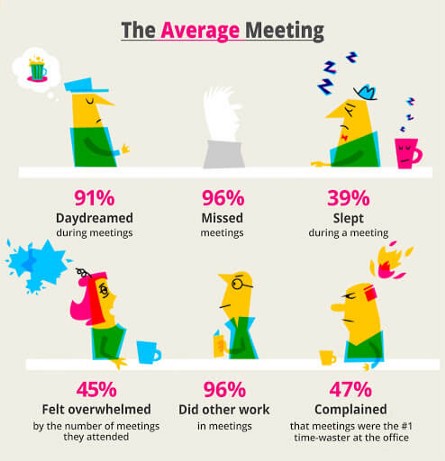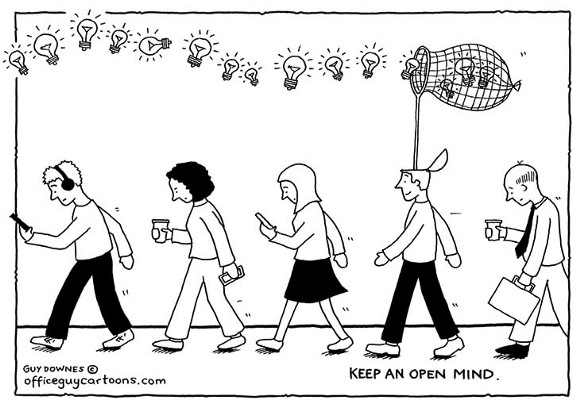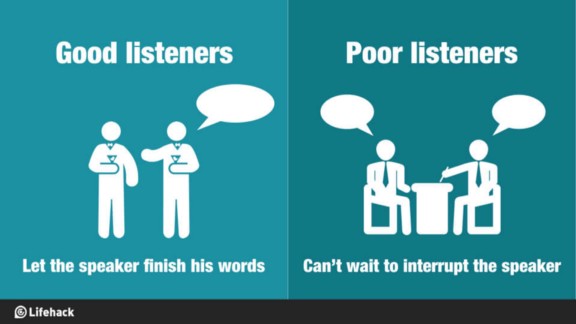Today, in our society, all relationships and social connections rely on communication. It was the development of different communication skills and processes that gave a boost to the rise of our civilization. Think about it. Would humanity be able to transfer knowledge without the means of communication? Even today, communication is as important as ever. Particularly in the business world, as proper communication can help you get hired, land promotions, and experience success throughout your career.
Team managers have a challenging task ahead. If they want to build high-performing teams that will yield results, then they have to think of different strategies to improve communication. These communication techniques play a vital role in helping teams overcome challenges, face difficult conversations, and generate authentic ideas.
But how to improve communication in the workplace? Here are a few suggestions on how you can do just that, starting today!
Encourage Your Team to Express Themselves
If you want to improve communication in the workplace, first you need to create a communication-friendly environment. In this environment, employees will feel that there’s a constant flow of communication and everyone can share their opinions.
But how can you create a communication-friendly environment? Here’s what Office Vibe suggests:
- Lead by example. If you are constantly communicating, your team will recognize that, and communicate as well. Say a simple “good morning”, talk about life outside work, and always ask questions.
- Encourage team interactions. This can include team building activities, eating lunch together, and celebrating important events.
- Have an open-door policy. Open door policy encourages communication, feedback, and discussion. This fosters trust and transparency among the mid and lower-level functional teams.

Source: Dilbert
Hold Essential Meetings
According to Atlassian, 91% of people daydream, and 39% sleep during meetings. For this reason, you should only hold meetings that are essential.
Although it varies from team to team, these are the 5 most effective meetings that can maximize employee productivity and engagement:
- Onboarding meetings. Holding onboarding meetings to welcome each new employee is always a good decision.
- Brainstorming meetings. They are a type of highly effective meetings that can help teams be creative together, solve problems, or think of different solutions to a problem.
- Kick-off meetings. A successful kick-off meeting can result in the team embracing the project’s objectives, getting inspiration, finding motivation, and planning the project (time, cost, scope).
- Feedback meetings. They are a great way for your team to really learn from their experience.
- All-hands meetings. They are an awesome opportunity to meet everyone that’s part of the company, from interns to VPs. Everyone can ask questions, voice concerns, and present their teams’ successes.

Source: Atlassian
Check to See If Any Areas of Communication Need Improvement
If you want to improve communication in the workplace, you’ll need to check if there are any issues preventing this? Do people feel safe sharing information with you? Is there a flow of communication between team members?
If your team doesn’t communicate properly, then you’ll have a hard time accomplishing tasks, meeting deadlines, and successfully completing projects. But how can you get these insights? One way of doing this is by conducting a survey. The survey will help you dig deeper into topics that are relevant to your team and analyze your team’s responses. Here’s an example of what the survey should entail:
- How satisfied are you with communications in your workplace?
- What is your impression of communications within your team?
- How do you feel about the information you receive?
Enter into Any Conversation with a Flexible, Open Mind
If you want to be a good communicator, you should enter into any conversation with an open mind. Be open to your employees’ points of view, their concerns, and suggestions. Instead of criticizing and disagreeing with your team, try to have more flexible, more honest, and more productive conversations.

Source: Office Guy Cartoons
Be Able to Appropriately Give and Receive Feedback
Employees expect valuable feedback from their managers and want their voices to be heard. Feedback is essential in order for a high-performing team to excel and make progress.
One study even showed that 65% of employees would like more feedback than they currently get. Roughly 27% of them said that the feedback they receive helps them work better.
Giving and receiving feedback can help you:
- Build stronger relationships with your employees.
- Improve your team’s productivity.
- Increase your team’s loyalty.
- Have meaningful conversations with the team.
- Reach exceptional work results.

Source: Office Vibe
Be a Good Listener
The key to being a good communicator is being a good listener. Why? Because not a single employee likes communicating with a manager who spends hours talking but doesn’t hear for a minute what others have to say.
How can you become a better listener? The road might be challenging, but with a little bit of effort, anything is achievable:
- Leave judgment behind. Break free of your own beliefs and opinions and put yourself in the other person’s shoes. Let the other person talk, no interruptions allowed.
- Be curious. Instead of listening out of politeness, listen out of curiosity. Be curious about what others have to say. You might learn something new today and pass on that information to other people.
- Ask questions. One of the best ways to be a better listener is to ask more questions than you give answers. When you ask more questions, people will be encouraged to give you honest answers.
- Repeat back what you heard. A vital part of active listening is repeating back what the speaker said. If they agree that what you heard is correct, you can continue with the conversation. If not, the speaker needs to reword their statement so that you understand.

Source: LifeHack
Pick the Right Medium for Communication
If you want to improve communication in the workplace, picking the right medium for your message is crucial. Why? Because different communications require different mediums. Although all types of mediums like phone, email, and face-to-face are used to convey information, the context varies greatly.
Let’s take a closer look at some of the different mediums for conveying different messages:
- Email: email is great a medium because it’s fast, simple and effective. You can use it to send team notifications, reminders, and share company news.
- Phone: phone calls an excellent way to share ideas, come up with a solution, and solve problems.
- Face-to-face: face-to-face communication is most effective when you need to share important personal information. It should be used for delivering bad news, communicating performance reviews, or conveying something that’s confidential.
- Social media: social media is ideal for sharing news about team achievement, company culture, and blogs.
Conclusion
Improving communication in the workplace is no science-fiction. Creating a communication -friendly environment is within reach, by following the tips mentioned in this article. Hopefully, they will help you to encourage open-team communication and knowledge-sharing ambiance that will benefit your business in the long run.
To sum up, some of the most effective strategies to improve communication in the workplace are:
- Encouraging your team to express themselves.
- Holding essential meetings.
- Checking to see if any areas of communication need improvement.
- Entering any conversation with an open mind.
- Being a good listener.
- Picking the right medium for communication.









